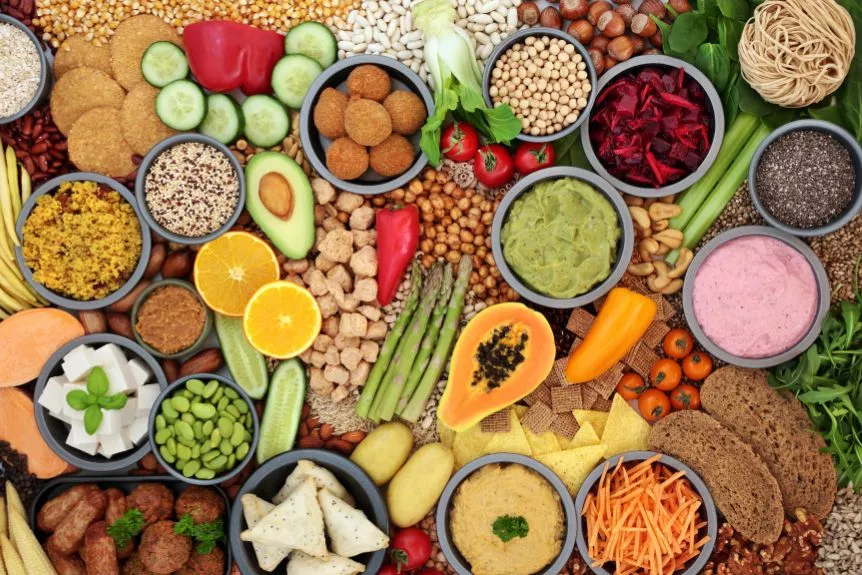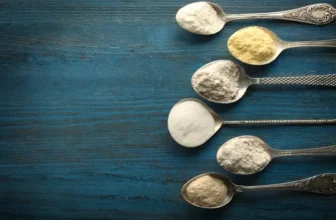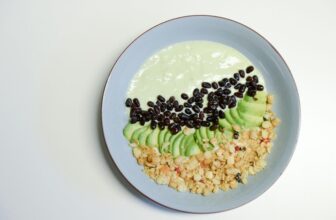
When it comes to the debate between plant-based protein powders and whey protein, the question of effectiveness lingers. You may be wondering which option truly reigns supreme in the realm of muscle-building and recovery. As you explore the nuances of nutritional profiles, digestibility rates, and muscle-building potentials, a clearer picture emerges. Are plant-based protein powders on par with whey protein, or is there a definitive winner in this protein powder showdown?
Nutritional Profile Comparison
When comparing the nutritional profiles of plant-based protein powders and whey protein, consider the key differences in their macronutrient content. Plant-based protein powders, derived from sources like peas, soy, or hemp, offer a complete protein source suitable for vegans and vegetarians. They're often rich in fiber and antioxidants, which can benefit your overall health.
On the other hand, whey protein, a byproduct of cheese production, is a complete protein derived from dairy. It contains all essential amino acids needed for muscle growth and repair.
In terms of macronutrients, plant-based protein powders generally have lower protein content per serving compared to whey protein. However, they often contain less saturated fat and cholesterol, making them a healthier option for individuals looking to reduce their intake of these nutrients. Whey protein, on the other hand, tends to be higher in protein content, making it a more concentrated source of this macronutrient.
When choosing between plant-based protein powders and whey protein, consider your dietary preferences, nutritional goals, and any specific health considerations you may have. Both options can be beneficial, so selecting the one that aligns best with your needs is key.
Digestibility and Absorption Rates
Comparing plant-based protein powders and whey protein, it's important to consider their differences in digestibility and absorption rates. Whey protein, derived from dairy, is known for its high digestibility rate, meaning it's easily broken down in the digestive system and absorbed quickly into the bloodstream. This fast absorption makes it an excellent choice for post-workout recovery when your muscles need instant nourishment.
On the other hand, plant-based protein powders, such as those made from pea, rice, or hemp, may have slightly lower digestibility rates compared to whey protein. However, advancements in processing techniques have improved the digestibility of plant-based options significantly. While plant-based proteins may be absorbed slightly slower than whey, they still provide the necessary amino acids for muscle repair and growth.
Muscle Building and Recovery Potential
Achieving optimal muscle building and recovery potential relies on selecting the right protein source for your dietary needs. Whether you opt for plant-based protein powders or whey protein, both can effectively support muscle growth and repair. Plant-based proteins like pea, hemp, or brown rice protein contain all essential amino acids needed for muscle recovery, but their amino acid profile may not be as robust as whey protein. Whey protein, derived from milk, is a complete protein source rich in branched-chain amino acids (BCAAs) like leucine, which are crucial for muscle protein synthesis.
Research suggests that whey protein may have a slight edge over plant-based proteins in promoting muscle protein synthesis due to its higher leucine content. However, both plant-based and whey protein powders can enhance muscle recovery and growth when consumed as part of a balanced diet and combined with regular strength training. Ultimately, the most suitable protein source for you depends on your dietary preferences, tolerances, and goals.
Considerations for Different Dietary Needs
To cater to different dietary needs effectively, consider the protein source that aligns best with your nutritional requirements and health goals. For individuals with lactose intolerance or dairy allergies, plant-based protein powders offer a suitable alternative to whey protein. Plant-based options like pea, hemp, or rice protein are free from dairy and are easily digestible, making them gentle on the stomach. These alternatives also cater well to vegetarians and vegans, providing a complete amino acid profile necessary for muscle growth and repair.
If you follow a vegetarian or vegan diet, plant-based protein powders are a great choice as they're derived from plants and are cruelty-free. Additionally, some plant-based protein powders are fortified with essential vitamins and minerals, enhancing the overall nutritional value of your protein supplement. On the other hand, if you have specific dietary restrictions or follow a ketogenic diet, whey protein may be more suitable due to its higher leucine content, which is important for muscle protein synthesis. Ultimately, understanding your dietary needs and health objectives will guide you in selecting the protein powder that best supports your overall well-being.




